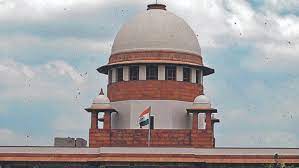On the ground that he was colour blind. It is undeniable that he had completed the graduate degree course in electrical engineering, had also qualified in the recruitment process, and was selected for the post of AE. (Para 1)
As noticed earlier, TANGEDCO, has nowhere indicated in express terms, that colour vision deficiency, in any form or degree, is a bar to employment for AE. (Para 17)
The provisions of the Rights of Persons with Disabilities Act, 2016 (hereafter “the Act”) were preceded by the previous law, the Persons with Disabilities (Equal Opportunities, Protection of Rights, and Full Participations) Act, 1995. The previous law, was enacted by Parliament pursuant to our country becoming a signatory to the Proclamation on the Full Participation and Equality of the People with Disabilities in the Asian and Pacific Region (Para 18)
The facts of this case demonstrate that the appellant is fit, in all senses of the term, to discharge the duties attached to the post he applied and was selected for. Yet, he is denied the position, for being “disabled” as he is colour blind. At the same time, he does not fit the category of PWD under the lexicon of the universe contained within the Act. These challenges traditional understandings of what constitute “disabilities”. (Para 20)
It is evident that the AE works at a position of overseeing supervisory work of Junior Engineers. This could involve, at the field stage, satisfaction after visual inspection. Sufficient safeguards (whenever the appellant’s services in that regard are absolutely essential, and he is deployed on some occasions) can be taken, to ensure that he is accompanied by those without any colour vision deficiencies or impairments. TANGEDCO’s units and organizational structure, in this court’s opinion, have sufficient possibility for accommodating the appellant in a unit or department which may not require utilization of skills that involve intense engagement with colour. (Para 27)
SUPREME COURT OF INDIA
2023 STPL(Web) 347 SC
[2023 INSC 914]
Mohamed Ibrahim Vs. The Chairman & Managingdirector & Ors
Civil Appeal No.6785 Of 2023 [@ Special Leave Petition (Civil) No(S). 12671 Of 2022-Decided on 16-10-2023.
https://stpllaw.in/wp-content/uploads/2023/10/2023-STPLWeb-347-SC.pdf







